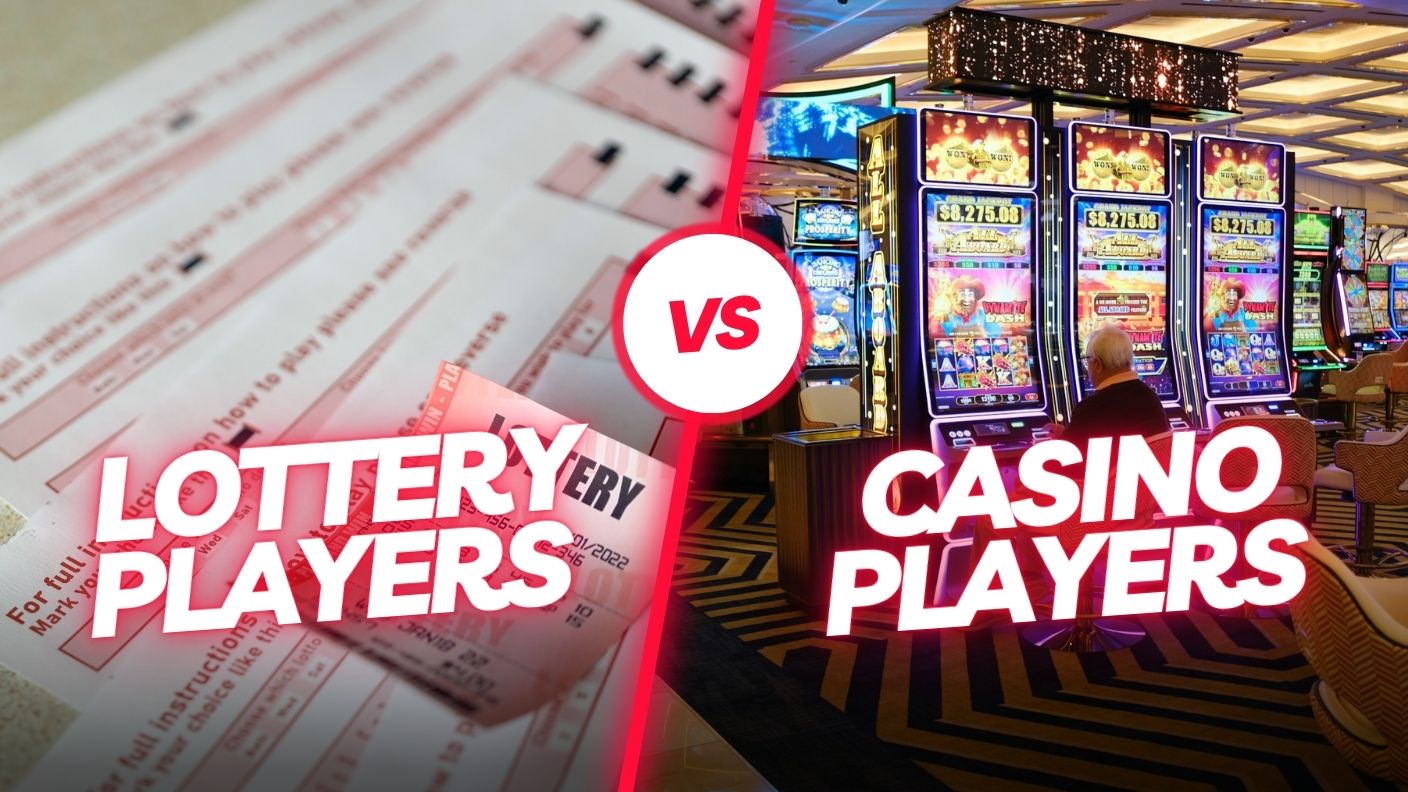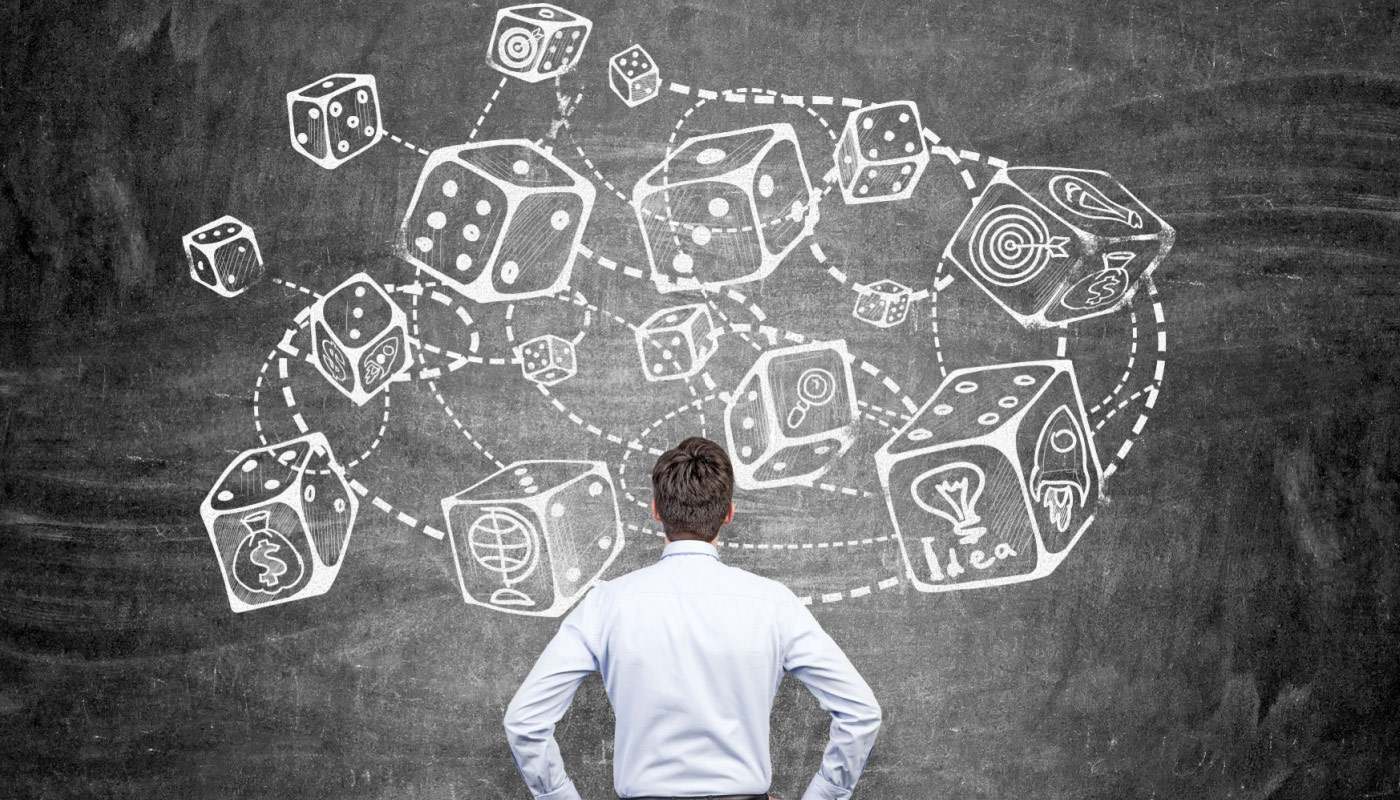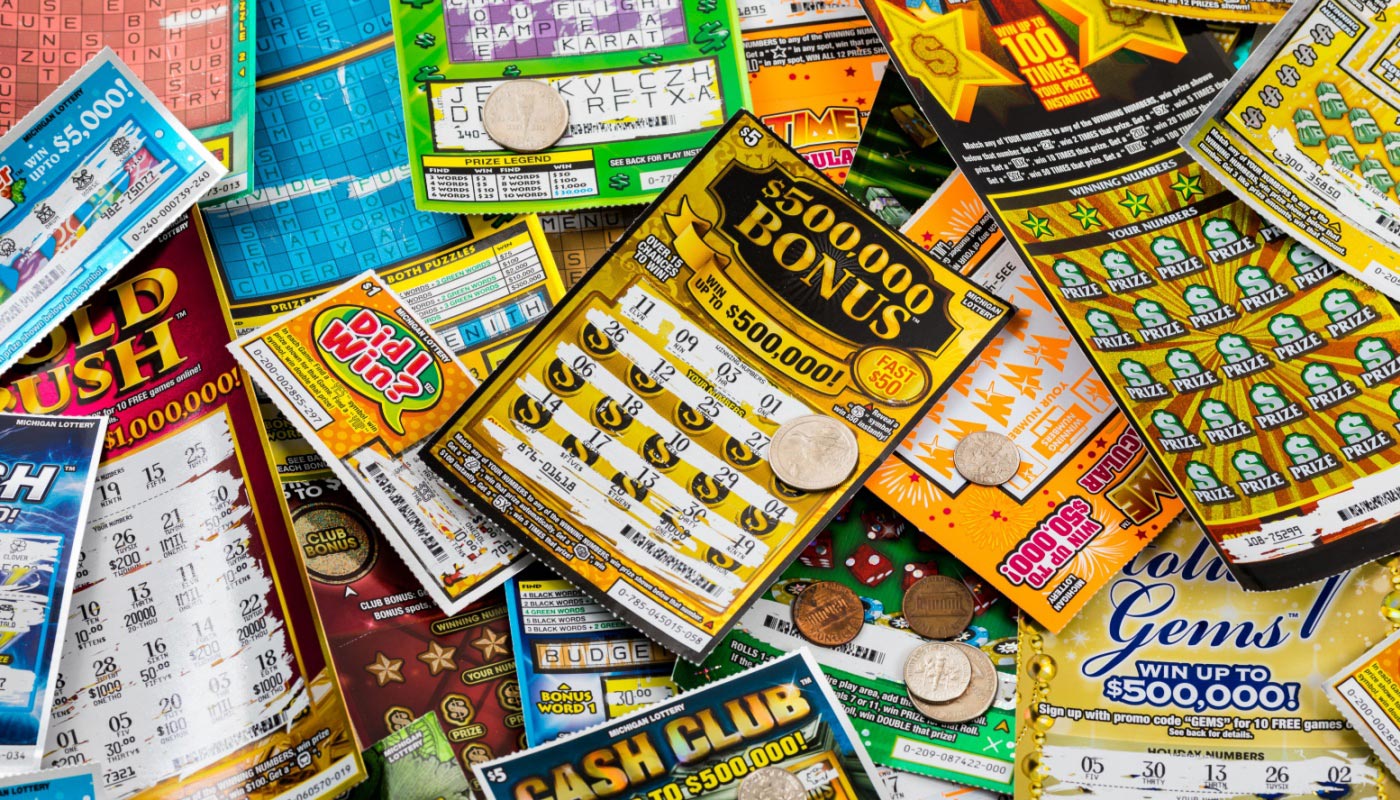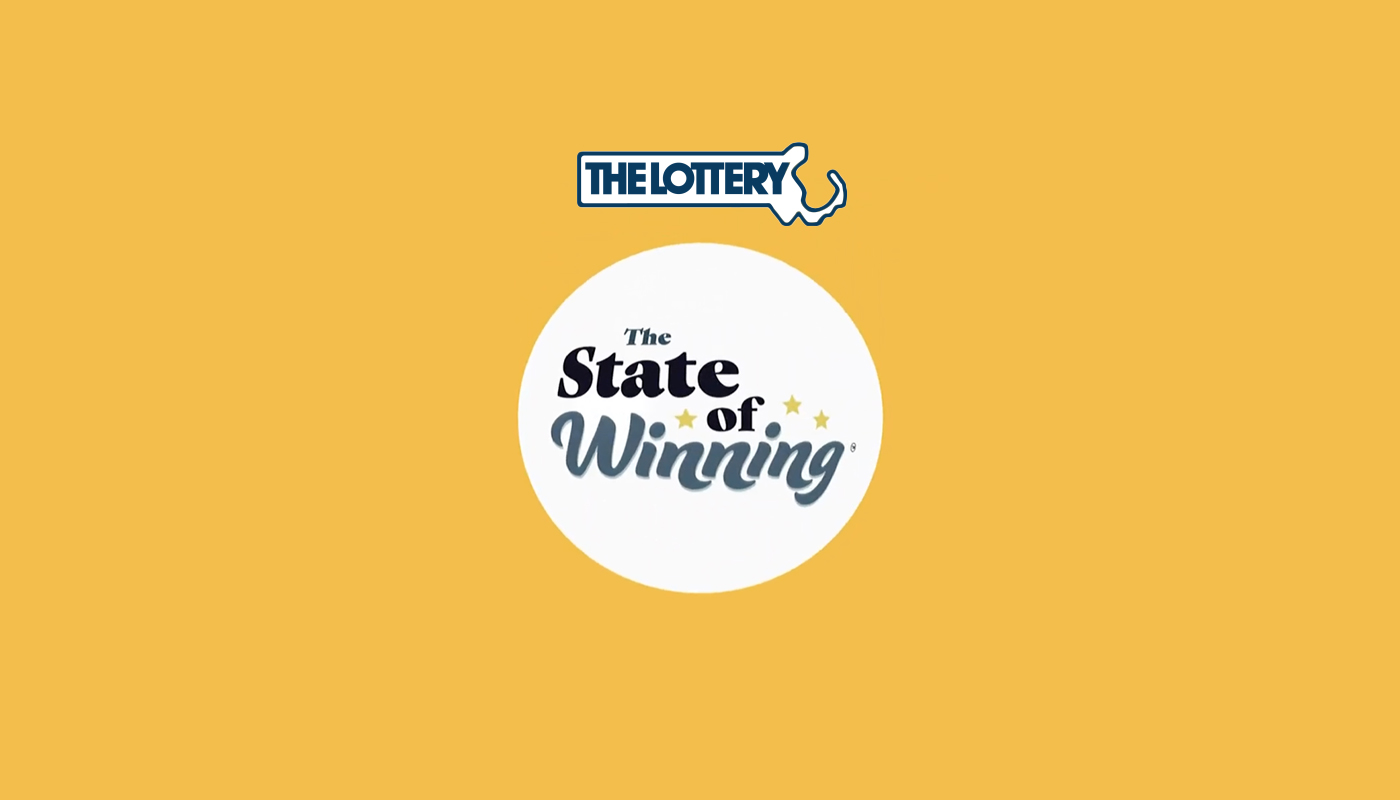
News writer
When it comes to gaming, players have countless options. However, two of the most popular ways to put their money on the line and place their bets are lottery games and casino games.
When you first look at the two options, you might think they are very similar — both options involve the player risking some amount of money for the opportunity of winning — but the motivations, psychology, and experiences of lottery players versus casino players are not even close.
By understanding these differences, it can give you insight into why people might choose one form of gambling over the other. In addition, it might even help players make better choices about how they engage with these games of chance.
Effortless wins or strategic spins?
For lottery players, the thrill of the game often lies in the simplicity of the game and the minimal time investment needed. It takes only seconds to buy a lottery ticket, especially when you are able to purchase it online. The results from that quick purchase can then lead to a life-changing payout without needing any particular skill or strategy.
Playing the lottery becomes almost ritualistic for many people — buying a ticket while out grocery shopping, picking up a ticket at the gas station, or finding your favorite retailer to buy your weekly lottery tickets.
However, casino games, from blackjack to slot machines, require more than just a ticket and a dream. These games often involve strategies, rules, and interactions with other players or dealers, which then creates a unique atmosphere and experience.
Many casino players enjoy the “game” of gambling as much as the possibility of winning. It's a more immersive experience than playing the lottery. This will often help fulfill a social or competitive drive rather than simply the chance of walking away with the big jackpot.
What motivates the different types of players?
For lottery players, the motivation is often linked to hope, escapism, and the thrill of the “what if.” Even with the odds being so large, the idea of one lucky ticket transforming someone's life is powerful.
Some of these lottery players use the lottery as a way to dream of a different life, giving them hope in a way that's difficult to replicate in other gambling forms. If these players don't win the big jackpot, there isn't a ton of disappointment compared to more interactive gambling forms. Lottery players knew the odds were slim, so the loss feels less personal and more like an outcome of chance.
For casino players, they are often motivated by skill development, competition, and the experience of being in a lively, energized setting. When you are gambling in a casino, you get that unique buzz — the lights, sounds, and camaraderie help add to the thrill of a win or the sting of a loss.
The possibility of honing skills and engaging with other players adds to the excitement, giving players the idea they are influencing the outcome. An experienced blackjack or poker player will come back to the casino because they think they can improve, beat the house, or outplay other players. The challenge itself becomes a significant part of the experience.
The financial mindset: Casual tickets vs. calculated risks
When it comes to spending their money, lottery players are usually more casual about it. A few dollars on a ticket doesn't feel like a lot to many people, and they often treat it as a “small price for a big dream.”
Even if they lose, it's unlikely to have a financial impact. The thrill of a potential win feels worth the cost. For some, there's even enjoyment in dreaming about that big win in the days leading up to the drawing, which is a value in itself.
The financial relationship between casino players and gambling is often more complex. Casino gambling can easily turn into high-stakes play, with bets made quickly and the opportunity for both quick wins and fast losses.
Those who go to the casino more often may be comfortable spending larger amounts of money, treating it as part of their entertainment budget. Doing this, however, requires careful management, and players are often more vigilant about tracking wins and losses than lottery players. Casino players often think there is that possibility of winning back any money they lost, which can heighten both the risk and the thrill but can also lead to addictive cycles if the stakes get too high.
How the social aspect plays into things
Social dynamics are important in determining why people gravitate toward one form of gambling over another. Lottery players often gamble alone, buying tickets normally by themselves.
Occasionally, you will get the office pool or the lottery group that buys batches of tickets together, but it's still a low-key social interaction. For many, the lottery serves as a hopeful, personal escape from daily routines rather than a social event.
On the flip side of things, casino gambling has a deeply social element. Casinos are designed to keep players engaged with other players, and even online casino platforms integrate chat features and live dealers to simulate this experience.
Players at casinos frequently bring friends, meet other players at the tables, and engage in shared excitement or disappointment. This sense of connection, with its camaraderie and rivalry, creates an immersive environment that many find addictive. This isn't just because of the possibility of a win but also because of the lively community aspect it brings.
Waiting for wins vs. chasing highs
Lottery players are often okay with delayed gratification. The anticipation between buying a ticket and the actual drawing taking place is part of the experience. This gives them time to allow themselves to daydream and build excitement without immediate results.
This delay creates a different kind of pleasure — kind of like waiting for a holiday or big event — and winning or losing takes on a ceremonial feel rather than an immediate high or low.
Casino games, however, operate on quick cycles, often delivering results in seconds. This instant gratification can be incredibly stimulating, as wins and losses happen almost in real time. This immediacy is a big part of the casino experience, keeping players engaged and constantly moving from one moment to the next.
However, this pace can also encourage impulsive betting and, in some cases, problem gambling as players chase that next quick thrill or attempt to win back what they are losing.
Betting on luck or skill?
One of the biggest differences between lottery and casino players is how they think of luck and control. Lottery players typically know the odds are against them, and luck is the main factor in winning or losing.
This perception can be somewhat liberating — if they don't win, they simply weren't lucky that time. The expectation that luck alone will decide their fate often prevents them from spending a lot of money on tickets, as they recognize the improbability of winning.
Casino players, especially those who engage in skill-based games, may perceive that they have a level of control over outcomes, making them more prone to strategic betting and repetitive play. Games like poker, blackjack, or sports betting offer players a sense of skill, giving them the idea that their actions can improve their odds of winning.
This perception of control, while sometimes realistic, can also lead to “gambler's fallacy” — the mistaken belief that certain outcomes are due or that they can predict future outcomes based on previous results.
Ticket buyer or table regular?
Another big difference between lottery and casino players is how gambling works into how they identify. Lottery play rarely becomes a part of one's core identity — most people who play the lottery don't consider themselves “gamblers.”
Buying a lottery ticket feels casual, more like participating in a raffle than in serious gambling, and it doesn't usually change how they view themselves or their social circles.
For casino players, particularly those who often go to casinos or play skill-based games, gambling can become a defining hobby or even a part of their identity. These players might connect with a community of fellow gamblers, discuss strategies, or travel to casino destinations.
For these types of players, gambling is less about the dream of an instant life change and more about the thrill of the game and the camaraderie of the community. This sense of belonging can keep people returning, fostering relationships with other players, dealers, and casino staff, and even shaping how they spend their time and money.
When fun turns into dependency
The patterns of dependency and the potential for addiction vary significantly between lottery and casino play. Lottery addiction is less common and usually manifests as spending small but frequent amounts on tickets.
Since lotteries don't provide the immediate gratification of casino games, they're less likely to lead to compulsive spending or problematic behaviors. However, lottery tickets can still become a habit, particularly for those who feel financially constrained or desperate for a way out.
Casino gambling, with its immediacy and immersive atmosphere, has a higher risk of fostering dependency. Games with quick cycles and interactive play are designed to keep players engaged, and the social aspect can normalize high-stakes spending.
For some, the risk of losing control can lead to problem gambling behaviors, impacting relationships, finances, and mental health. Studies have shown that the cycle of wins and losses, combined with the belief in skill or control, can create patterns that are challenging to break.
Final thoughts
When first looking at lottery and casino gambling, it can seem similar. However, they each bring in different types of players for different reasons and they each create unique experiences.
While lottery players may be driven by the “what if” of a single lucky ticket, casino players seek excitement, skill, and social engagement. Not only are these differences interesting, but they can also serve as a helpful lens for people to better understand their motivations in gambling and make choices that align with their intentions and well-being.
Whether the person is dreaming of winning a jackpot or mastering a blackjack strategy, recognizing these motivations can lead to more mindful play and a healthier relationship with games of chance.
Enjoy playing the lottery, and please remember to play responsibly.





















Comments